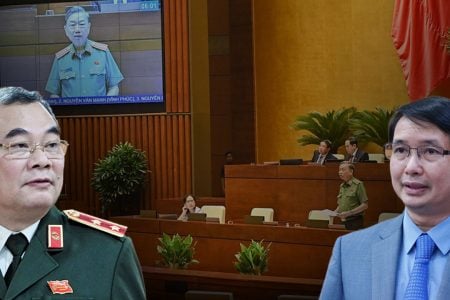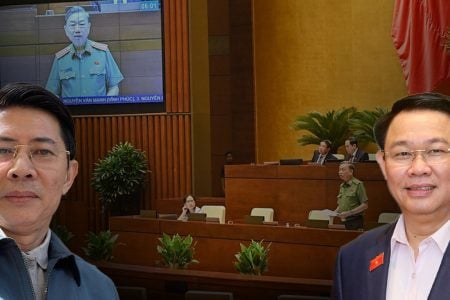
Profiteering is a complex market problem and, it can degrade the official system of the totalitarian party regime if transformational reforms are not appropriate.
Negative impact
Profiteering is an economic category but at the same time a complex problem of the market. It has negative effects such as reducing growth and moral degradation and, people cannot simply eliminate it but can create institutions in the process of operating or transitioning from a centralized economy to a market. Profiteering occurs when an individual, organization, or business seeks to profit through manipulation of the economic and/or legal environment rather than business activities (trade, services, or production).
Economists have shown that profiteering is a non-profit activity, if the number of people participating in profiteering is reduced, the economy will grow and, vice versa. They also recommend that there should be a mechanism to strengthen the guarantee of “property rights.” And, for transition economies, where most of the assets are managed by the state in the form of “universal ownership” and “public property,” privatization is crucial to the effectiveness of the economy of the above mechanism.
However, in the case of Vietnam, when the communist party rules the regime led the market transformation, although a pragmatic point of view was practiced, in practice it was always challenged by ideological clinging. society. The inevitable consequence is the increasingly serious political deterioration, in which the raging state of corruption is threatening the regime’s existence.
Corruption is rampant
Among the many types and objects of profiteering, the self-seeking behavior of officials is the ‘worst’, always leading to corruption, that is, taking advantage of positions and powers to directly or indirectly appropriate the property of other people. The reality of corruption is exposing the serious deterioration of officials’ ideology, morality, and lifestyle. Instead of performing their duties and responsibilities and complying with the law and state policies, officials violated and abused their power for personal gain. In the period between 2012 and 2022, the Communist Party’s anti-corruption efforts have more than 19,546 cases/33,868 accused have been prosecuted and investigated, mostly for corruption, position, and economic crimes. Which, there are 170 senior officials of the Central Government, including 33 members, former members of the Central Party Committee, and more than 50 general-level officers in the armed forces …
Areas with “high yield” and “state monopoly” such as land, public property, public services, cadre work, etc., are places where the self-seeking behavior of officials is common. A typical example to illustrate is the field of land and real estate, in which the number of cases of profiteering and corruption accounts for the highest proportion. In addition to the moral deterioration, officials faced great temptations, and the shortcomings of laws, institutions, and policies also contributed. The regime of “full people’s ownership of land represented by the state” – “Asin’s heel” of the regime, has tolerated abuse of power and illegal acts with the aim of corruption.

Profiteering like an “oil slick” spread to other areas such as healthcare, education, financial markets, state-owned enterprises, public non-business units, etc., where public property is maintained as a means necessary for totalitarianism. Serious, complicated, and sophisticated profiteering takes place in public personnel work.
For many years, “payroll” has not only not been able to streamline but also enlarged. The lifetime payroll regime in the state monopoly, privilege, and privilege apparatus has tempted many more ‘competitive‘ candidates through sophisticated forms of gifts, bribes, or ‘win-win’ other “benefits.”
The profiteer officials set a “bad” example for other forms of imitation, causing the situation of “profiteering” under the phenomenon of “snowball rolling.” For example, all kinds of business licenses, degrees, certificates, concealed health checks, etc., such as complicated administrative procedures required by the State, are “exploited” by fake papers, circumvent the law, and envelop… instead.
Corruption and profiteering officials always leave serious consequences that the people suffer first: inhibiting economic growth, generating negative social phenomena, losing confidence in the regime, and preventing one of the typical manifestations is the establishment and development of a crony capitalist state, in which officials collude with the business world to profit and corrupt in many sophisticated forms such as security guards, backyard businesses, gifts of houses, cars, stock shares… Officials are no longer ‘poor’, they have many huge assets, floating and sinking of unknown origin… When corrupt has turned officials into a rich class, how will the leadership and management of society by them be?!
Corruption is related to the alienation of monopoly power as a consequence of the political recession. The main idea here is that systematic profiteering rooted in the nature of the totalitarian Communist Party regime is posing the problem of controlling official political opportunism. The establishment of an internal self-control mechanism is facing challenges when anti-corruption has not been effective as expected, there is a lack of an open and transparent mechanism and accountability for officials.
Political reform is always difficult, complicated, torn between the old and the new, conservatism and innovation, moderate criticism and opposition, democracy and loyalty, and the cult of power…, but preserving Party defense, the privileged regime is always the highest priority. Recently, the “proposal” of the Chief Procurator of the Supreme People’s Procuracy to “facilitate corrupt offenders to pay remedial money to reduce criminal penalties” was “comrades and associates” advocates for the “progressive trend” but is raising public concerns about side effects, the decline in trust, inequality before the law and social injustice, etc. Will it become a problem? “case precedent” when in fact, in recent times, some high-ranking officials have paid “huge” money to have their sentences reduced?
Profiteering is a complex market problem and, it can degrade the official system of the totalitarian party regime if transformational reforms are not appropriate. Corruption goes hand in hand with official political opportunism. Without due regard for this characteristic, anti-corruption work will continue to “not achieve the desired results.”
Thoibao.de (Translated)





























